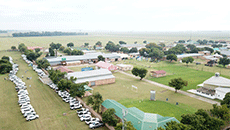
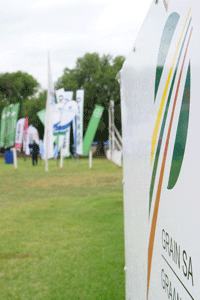 |
Grain producers once again demonstrated that unity and dialogue can be used as building blocks to reach consensus, even when tackling difficult and emotional topics such as expropriation without compensation. Grain SA, at its annual Congress, which concluded last week, successfully passed a motion on land reform after long discussions with both commercial and developing grain producers cumulated in a motion agreed upon by all parties. Delegates proved once again the importance of unity in agriculture and the necessity of dialogue as building blocks for the future of the sector. Grain SA recognises the need for, and supports land reform and transformation in South Africa, and recognises the necessity of a thriving and prosperous grain sector to sustain and enhance food security to the benefit of all South Africans. At its annual Congress, Grain SA passed a motion on land reform and reiterated it is completely possible to achieve both these imperatives within the confines of the current Constitution, which the organisation respects. This motion on land reform emphasis that:
Grain SA will continue to advocate for and aspire to the handover of title deeds to the beneficiaries of land reform farms as the value of the land lies in the title to that land and without secure title there is no way to unlock the value of the land. Expropriation without compensation not only makes the unlocking of the value of land impossible for new farmers, it also erodes the very foundation on which our current grain production is financed. Private property rights are recognised around the world and enshrined in our Constitution for very good reason. Failure to uphold this will result in a catastrophic collapse of our economy. Very little information is available on Government’s motion, which creates uncertainty, therefore it is important for Grain SA to continuously engage and debate with Government. Grain SA will continue to seek partners from both government and the private sector to enhance and expedite land reform in such a way that it not only achieves land reform but also achieves long term sustainability and food security for our nation. |
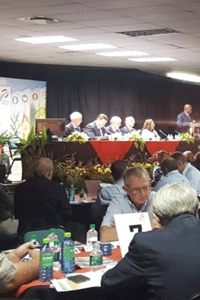 |
Grain SA would like to congratulate the Chairperson, Vice-chairpersons and newly appointed Executives, as well as the Chairman of the Audit Committee, with their appointments. We wish you well in your tenure and look forward to your contribution in organised agriculture. Our newly elected members are:
|
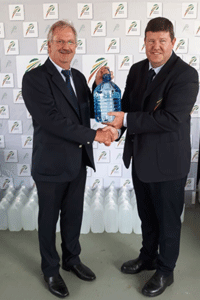 |
Congress delegates, guests and agri-stakeholders donated thousands of litres of water at the recent Grain SA Congress held at NAMPO Park, in Bothaville. Earmarked for Western Cape communities suffering under severe drought, the reaction was phenomenal as the water donations started piling up. Andries Theron, past Vice-Chairperson and farmer from Moorreesburg, accepted the water donations on behalf of some of the stricken communities. The water, transported by Rovic Leers and Bunadonna Group, will be distributed through a church network to those who need it most. As described by Nioma Venter from the Dutch Reformed Church South Africa, the truck with its precious freight was awaited full of anticipation. The group, unknown to each other, but brought together by this donation, brought smiles to many faces. The water donation will make a difference in Belville, Delft, Elsiesriver, Belhar and Bredasdorp. “We live in a wonderful country with wonderful people. The goodwill of South Africans is just overwhelming. We here in the Western Cape are currently on the receiving end of this kindness and would like to thank you very much”, Venter said. |
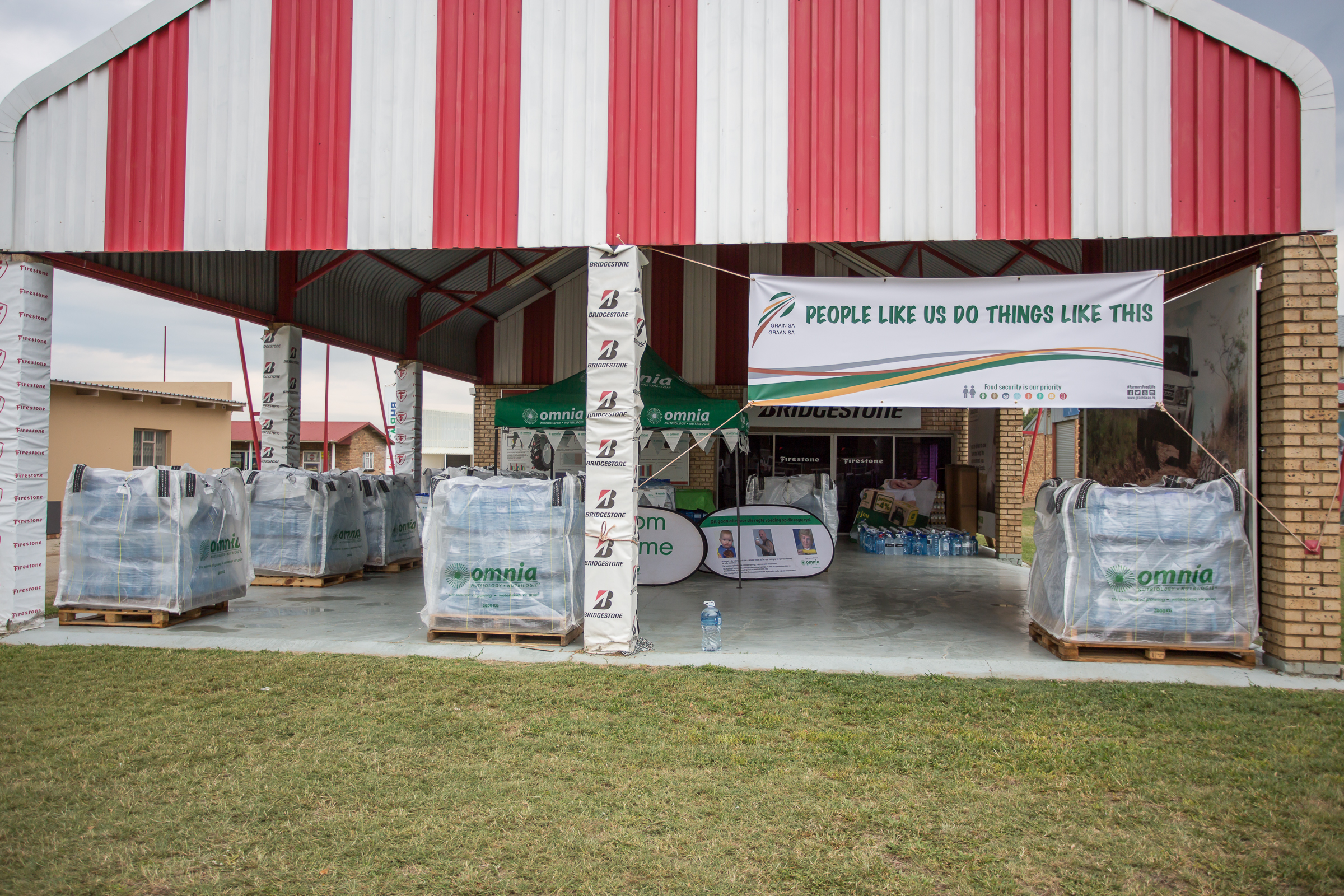 |
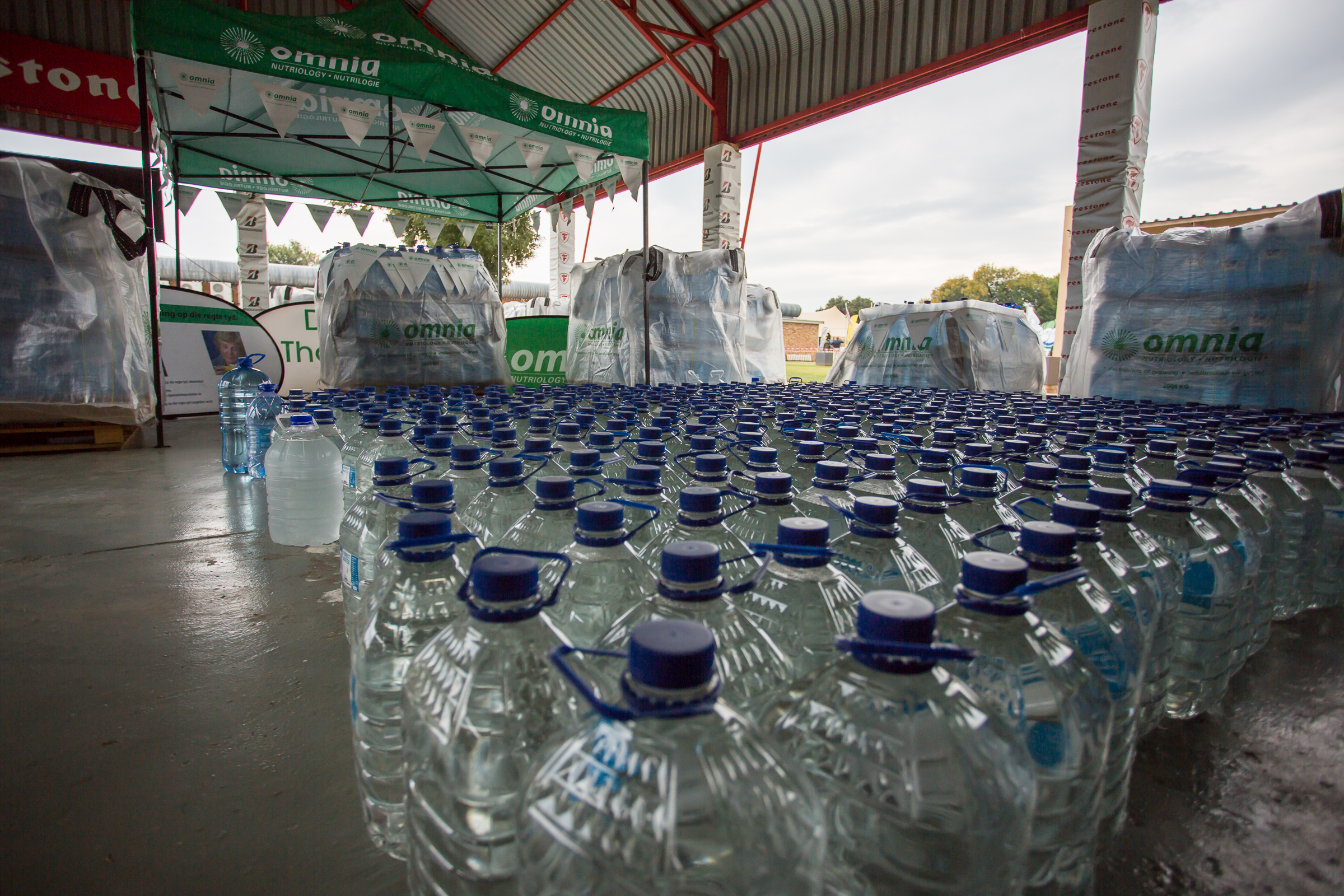 |
| The water drop-off point at NAMPO Park |
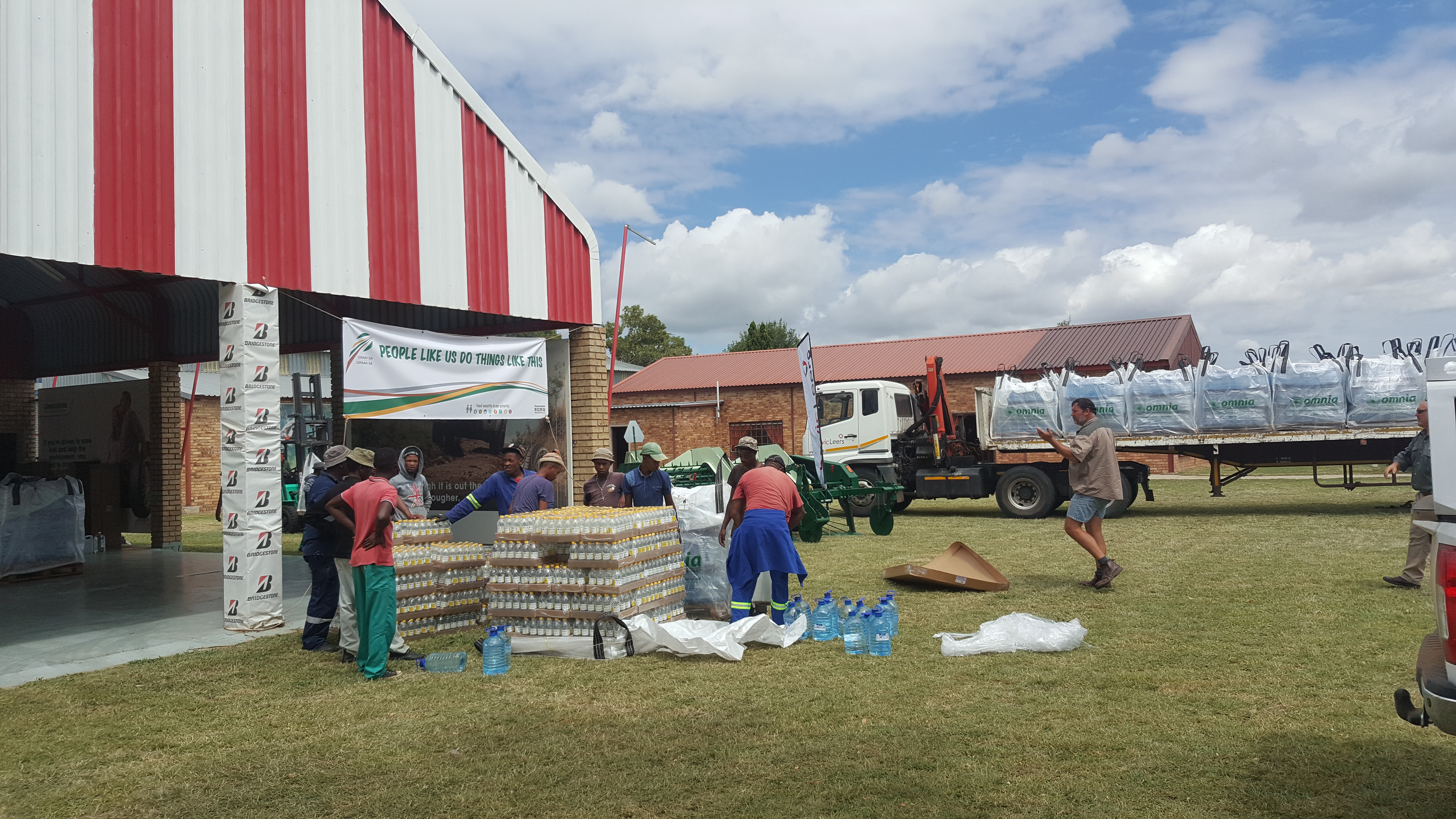 |
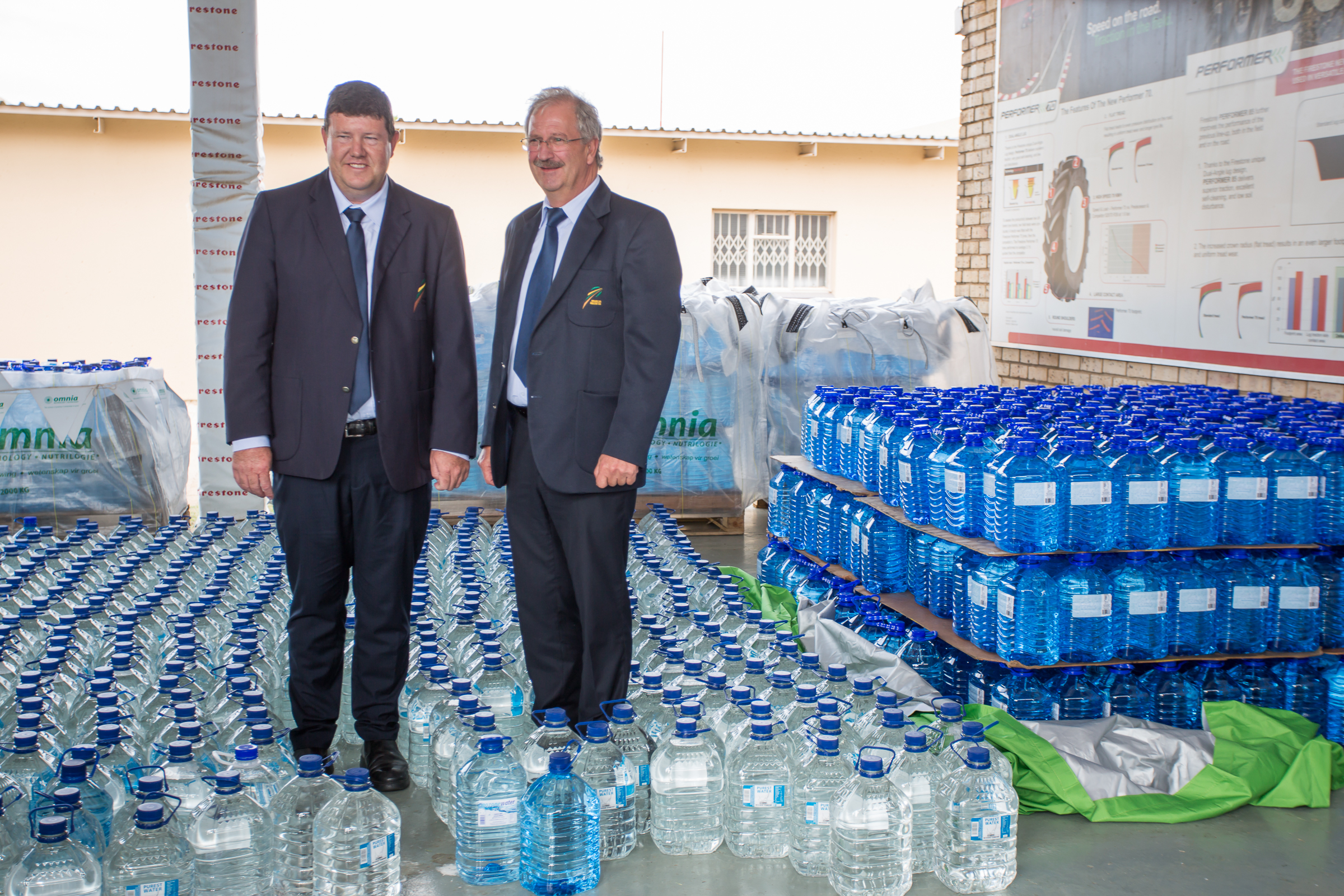 |
| Individual donations being loaded | Grain SA Chairperson Jaco Minnaar and Andries Theron |
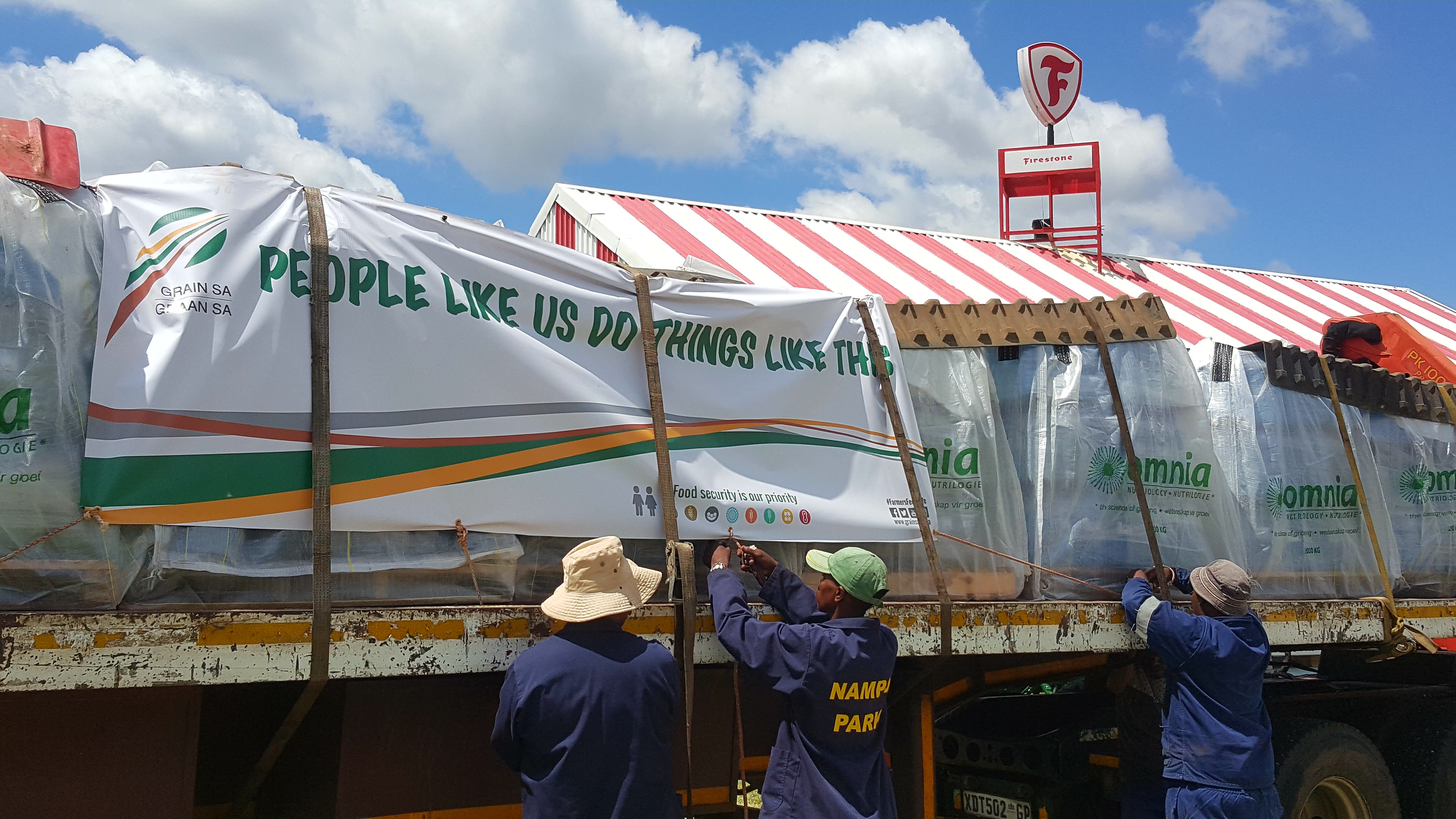 |
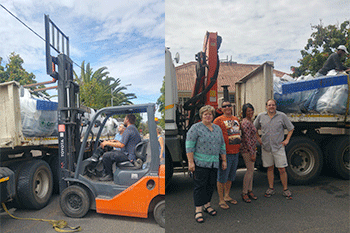 |
| Left to right: Nioma Venter, Western Cape Sinod; Sedric Heave, VGK Delft Lene November, VGK Delft and Willie Badenhorst, NG Belville West |
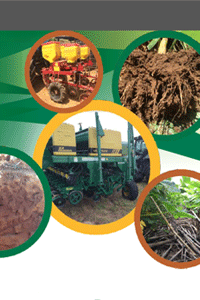 |
The "No-Till" Club of Ottosdal, in collaboration with Grain SA and the Maize Trust, once again presented a very successful and insightful conference on 13-14 March at the Ottosdal Showgrounds. With approximately 180 producers in attendance, this year’s theme focused on Diversity's key role in the regeneration, resilience and profitability of conservation agriculture. Dr Roelof Botha, part-time economic adviser at PriceWaterhouseCoopers and with the University of Pretoria's Gordon Institute of Business Science (GIBS), discussed the economic progress for South Africa expected in 2018, and with his positive outlook, left conference goers full of courage for the future. Prof Johnie van der Berg of North West University's presentation on conservation agriculture and biodiversity was incredibly insightful, followed by Prof Chris Danhauser, who continued with a presentation on diversity in crop production and cover crops. Producers were able to acquire first-hand knowledge from Izak Dreyer, farmer from Vrede, about his experiences of conservative agriculture after his visit to the USA and Gerrie Trytsman (ARC Animal Production) and Dr Andre Nel (Independent Researcher) discussed several Ottosdal cover crop trail results. After a delicious lunch, a visit was made to the trials on George Steyn's farm, with emphasis on different cover crops and the utilisation thereof, as well as a ground cover field grazed by cattle. Conservation agriculture in South Africa was the second day's focus, and Dr. Hendrik Smith, Conservation Agriculture Facilitator at Grain SA emphasised, among other things, soil health, conservation agriculture principles, soil carbon content and the opportunity producers have to address global warming. Further contributions were also provided by GP Schoeman (AgriSol) who covered soil analyses and recommendations, Hennie du Toit, (Animal and Grazing Scientist from Obaro), who discussed advantages of high pressure grazing in the North West Province, and Dr. Ronel Hendriks, (ABM Africa) who discussed soil health and microbiology. The day concluded with a producer panel discussion discussing conservation agriculture in practice. It was clear that there is no blueprint for conservation agriculture but that certain principles should be applied to tackle the issue, of which healthy soil is a very important first step. The prize for the best speaker was shared by Izak Dreyer (Vrede) and Koos Bezuidenhoud (Migdol). |
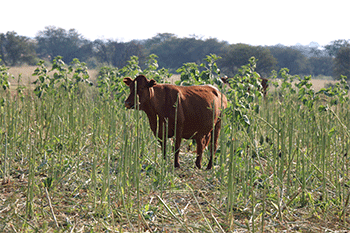 |
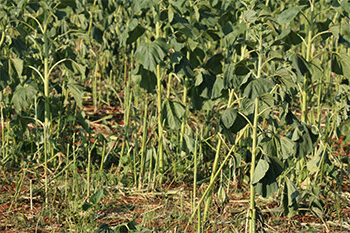 |
| Cattle graze cover crops | Cover crops after grazing |
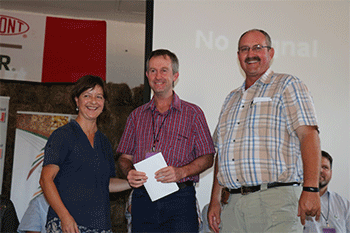 |
|
| Marleen Smit from Landbouweekblad presenting the prize for best speaker to Isak Dreyer (Vrede) and Koos Bezuidenhout (Migdol) |
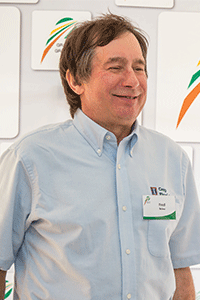 |
Delegates at the Grain SA Congress, had the privilege to listen to Prof Fred Below, Professor of Plant Physiology at the Department of Crop Sciences, University of Illinois presenting The seven wonders of grain production This insightful keynote addressed argued that maize grain yield is the final product of numerous factors that affect crop growth and development during the growing season and indicated that maize is undoubtedly the crop that shows the largest response to technology and management. Click here to read more about The Seven Wonders of Grain Production
|
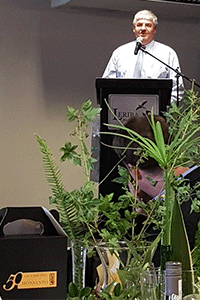 |
Monsanto South Africa is celebrating it jubilee year in South Africa this year, with this incredible journey beginning 50 years ago on 14 February 1968 when Monsanto was registered as a supplier of Agricultural products. Speaking at a luncheon to celebrate this milestone, Kobus Steenekamp, Commercial and Business Lead Monsanto South Africa said “During this time there were many outstanding people who made ground breaking contributions towards the business in South Africa. We were also privileged to have many of our local personnel that moved into global positions over the years and thus, not only made their mark in Monsanto in South Africa, but also on the global arena.” Throughout the past 50 years, Monsanto South Africa has had a positive impact on farmers and agriculture in South Africa, and “while we are reflecting on our rich history in South Africa, we must also acknowledge that we find ourselves in an extremely exciting time in the agricultural industry". "In partnering with growers across the globe, Monsanto has been a key player in sustainably increasing yields and bringing healthy food to the growing world population," Steenekamp concluded. |
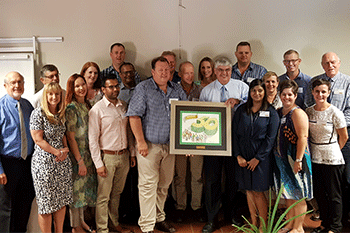 |
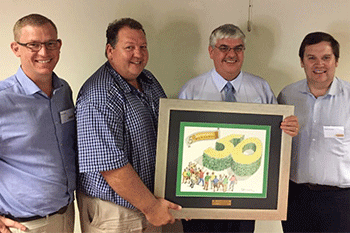 |
| Grain SA CEO, Jannie de Villiers presenting the Monsanto team with a 50-Year celebration keepsake |